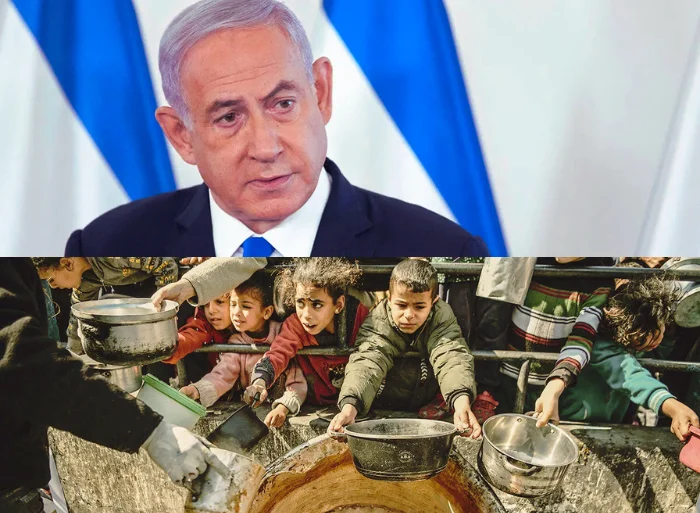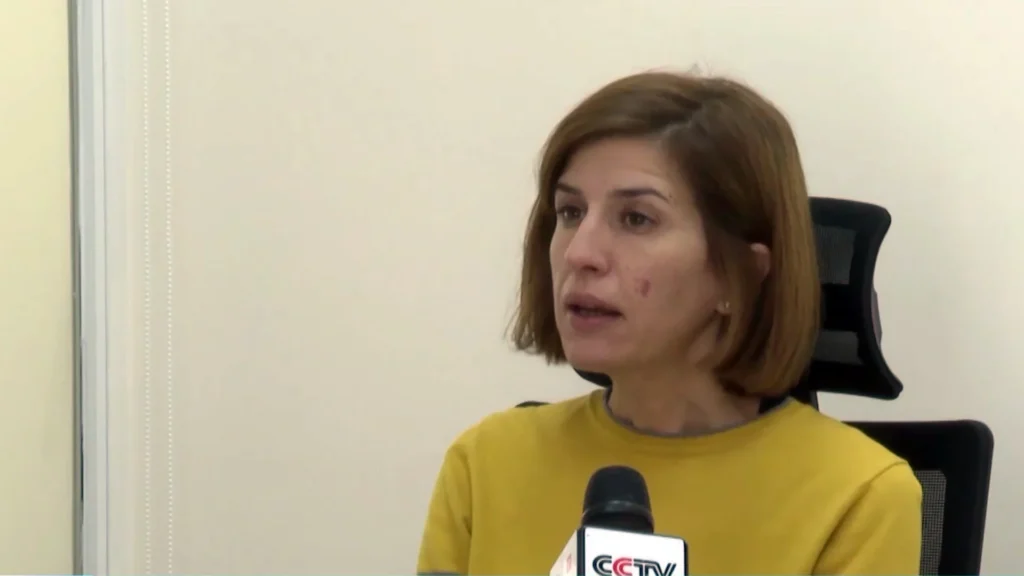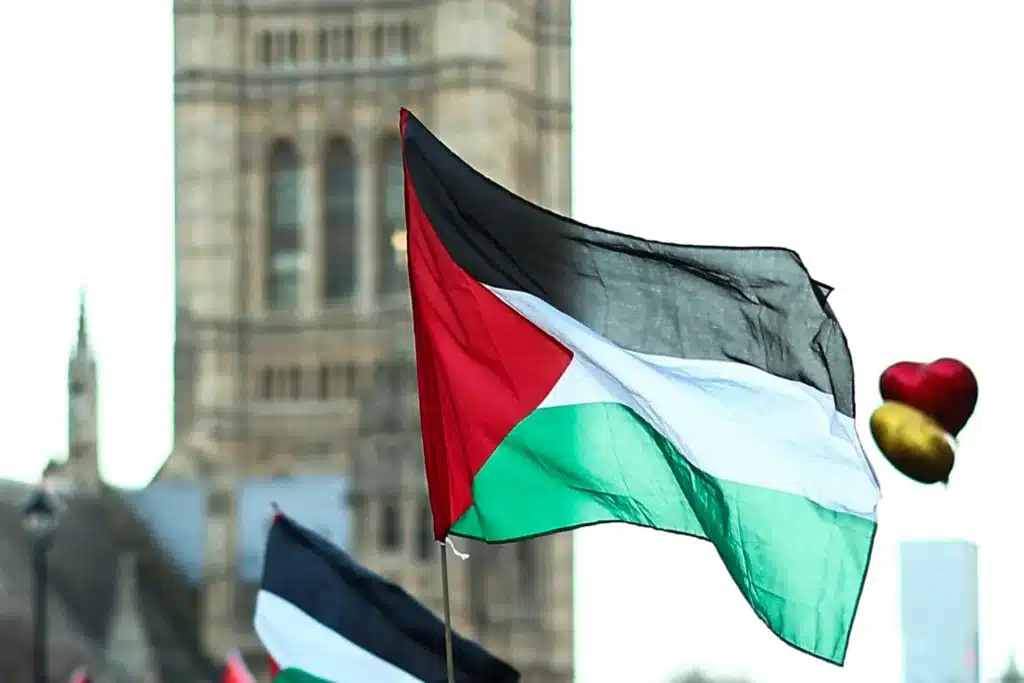UNRWA Operations in Gaza Face Imminent Collapse Due to Israeli Ban

UNRWA operations in Gaza are likely to collapse after Israel voted to ban the agency and its relief operations in Palestine, a spokesperson confirmed.
The director of communications of the United Nations Relief and Works Agency (UNRWA), Juliette Touma revealed that the chances of UNRWA operations in Gaza being stopped are “very, very high”. She explained that it is hard to unveil the situation in the “right words” since Israel’s move is “disappointing”.
Miss Touma was of the view that UNRWA does not have any clue on how the bill would be implemented.
What is the bill?
The Israeli parliament, Knesset Foreign Affairs and Defence Committee gave approval for two bills, which were only focused on limiting UNRWA’s activities in the Palestinian regions and occupied east Jerusalem. Israel opposes providing food assistance to Palestinians and their descendants.
The bill was passed yesterday and was able to receive 92 votes in favour of the bill. Only ten votes were against it. The second and third readings would transform into legislation.
The first stage of the legislation was to prohibit any contact with UNRWA. The second stage would ban the ongoing UNRWA operations in Gaza, considering it now an Israeli territory.
Knesset representative and journalist, Likud MK Boaz Bismuth, said,
“We convey a clear message to the terrorists: We will not forget, we will not forgive, and we will take any measure to ensure the security of our country”.
Juliette Touma explained how UNRWA operations in Gaza were a great relief to thousands
Miss Touma elucidated that there was one point in time when UNRWA was providing shelter to approximately a million people in Gaza. It was considered one of the largest food and healthcare providers to date.

She remarked that Israel should focus more on a ceasefire deal rather than imposing a ban on UNRWA. Miss Touma said that UNRWA has all the required infrastructure to continue relief services, and it would be hard to replace the agency.
Michael Martin condemns
Tanaiste and Minister of Foreign Affairs, Michael Martin openly condemned Israel’s move. He said that it would be difficult for UNRWA to keep going with its “life-saving work” since things are changing fast there.
He was of the view that if Israel already has clarified several times that it had been bombing Gaza to eliminate Hamas strongholds and that Hamas is taking shelter in populated areas, causing further difficulties for the civilians, the UNRWA ban is a “further collective punishment for the entire population”.
He interpreted the Israeli ban as a contradiction in its own actions since Israel ordered civilians to evacuate before bombing a certain area, as it apparently wanted a lesser risk of people dying. And now this bill is a complete contrast since Israel is letting people die.
He said,
“This is an attack on Palestinians. What’s happening in northern Gaza in particular is quite shocking”.
So does Taoiseach Simon Harris
Taoiseach Simon Harris condemned the Israeli ban too and urged that all United Nations members should take action.
He anticipated that this step would bring an additional catastrophe since a massive humanitarian crisis would begin. UNRWA is doing its best to curb humanity’s needs in times of sheer crisis and is carrying out its vital role in the devastated region.
Simon Harris said,
“Tonight’s vote in Israel to ban UNRWA is disastrous and shameful. It’ll go down in history as the moment Israel voted to cut off an irreplaceable humanitarian pipeline to a humanitarian disaster zone.”
Simon Harris was perplexed that since Israel is openly breaching international law and is not fulfilling its obligations towards the United Nations charter, why isn’t any member of the UN unable to take any action.
For more than seven decades, the UN agency has been providing them food and shelter across the occupied territories of Palestine as well as to the Palestinian refugees.
UN Secretary General’s views
The Israeli ban, according to UN Secretary-General Antonio Guterres, would have “devastating consequences” for the Palestinian people, particularly in the Occupied Palestinian Territory.
He also corroborated the same idea that nothing can replace UNRWA. He claimed that enacting legislation similar to the Israeli restriction would not aid in the conflict’s resolution.
The peace and security of the region are based on Israel’s actions themselves, which is not evident with the launch of the Israeli ban.
Also, the UN Secretary-General announced that he will alert the other 193 US members to the issue.
UNRWA’s chief thinks the same
UNRWA chief Philippe Lazzarini rebuked the Israeli ban and called it a “dangerous precedent”.

He said that it would only deepen the conflict despite the rest of the world urging for a ceasefire deal. The Israeli ban is only going to worsen the suffering of Palestinians.
The discredit of the UNRWA campaign is not going to minimise the conflict since the condemnation for this ban is coming from all sides, he said.
The United States, Germany and Britain are also not in favour of the Israeli ban, although the United States is the biggest ally of Israel.
Before its upcoming elections, the United States is concerned about Israel’s proceedings which certainly are not moving towards a peaceful ending of the war. The US has reiterated the “critical” role that UNRWA is playing in saying distressed human lives while distributing humanitarian aid in Gaza.
On 15 October, Washington warned Israel that it should let greater amounts of aid come to Gaza and it had 30 days to do so. Otherwise, the US might have to think of withholding some of the military assistance to Israel.
The same stands true for UK Prime Minister Keir Starmer. He criticised Israel’s move for the ban as UNRWA was doing essential work in providing food and educational services in the West Bank, the Israel-occupied region. According to the UK, it is similar to jeopardising the entire human race in Gaza and Palestine.
FAQs
1. What is UNRWA, and what does it do in Gaza?
The United Nations Relief and Works Agency (UNRWA) provides humanitarian aid to Palestinian refugees across the Middle East, including food, healthcare, shelter, and education services. In Gaza, UNRWA has historically been one of the largest providers of relief and support to residents, helping over a million people with critical services.
2. Why is Israel banning UNRWA operations in Gaza?
Israel’s parliament recently passed a bill that restricts UNRWA activities in Palestinian regions, citing concerns about security and the agency’s role in the conflict. Israeli representatives argue that UNRWA’s operations contribute to instability, and the new legislation aims to limit any assistance they provide, particularly in Gaza and occupied East Jerusalem.
3. How does the Israeli legislation against UNRWA work?
The legislation has passed an initial stage with a majority vote and aims to restrict contact with UNRWA and ultimately halt the agency’s operations within Gaza, which Israel claims as its territory. The bill still needs to pass second and third readings in the Knesset before becoming law.
4. What could be the impact of this ban on Palestinians in Gaza?
The ban could have severe humanitarian consequences, as UNRWA is a key provider of food, shelter, and healthcare for Palestinian refugees in Gaza. If operations cease, many people could face an intensified humanitarian crisis due to reduced access to essential services in a highly vulnerable region.
5. How has the international community reacted to Israel’s decision?
Global leaders and organisations, including Ireland’s Foreign Minister Michael Martin, Taoiseach Simon Harris, and UN Secretary-General Antonio Guterres, have condemned Israel’s move, stating it could worsen the humanitarian crisis in Gaza. Countries like the U.S., UK, and Germany have also criticised the ban, urging Israel to reconsider in the interest of peace and humanitarian needs.
LATEST NEWS
DISCOVER MORE






